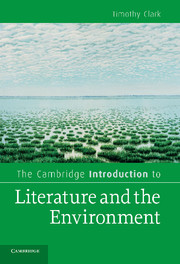Introduction
The challenge
Published online by Cambridge University Press: 05 June 2012
Summary
We live in the age of unintended consequences.
Ulrich Beck's phrase captures the peculiarity of a world in which day-to-day trivia seem weirdly politicised, often in disconcerting ways. What are the unintended consequences of being a motorist, taking a flight, eating meat or of simply flicking a light switch? Beyond this, the growing environmental crisis imposes kinds of retrospective irony: ‘It is as if Western society has deliberately set out to destroy the integrity of the ecosystem.’ Is the Bible in part at fault for granting to humanity ‘dominion … over the whole earth’? Lynn White Jr's controversial question from 1967 fed into a growing realisation that one of the distinctive features of western thought has been the depth and destructiveness of its assumptions about the human relationship to the natural world. At issue may also be conceptions about personhood, property and ethics:
Questions about preservation of the natural environment are not just technical questions; they are also about what defines the good and moral life, and about the essence and the meaning of our existence. Hence, these are not just academic or technical matters, to be settled in elite dialogues between experts. These are fundamental questions of defining what our human community is and how it should exist.
Robert J. BrulleThis crucial, exciting but sometimes bewildering intersection of issues is the space of ecocriticism, or the study of literature and the environment.
- Type
- Chapter
- Information
- Publisher: Cambridge University PressPrint publication year: 2011



